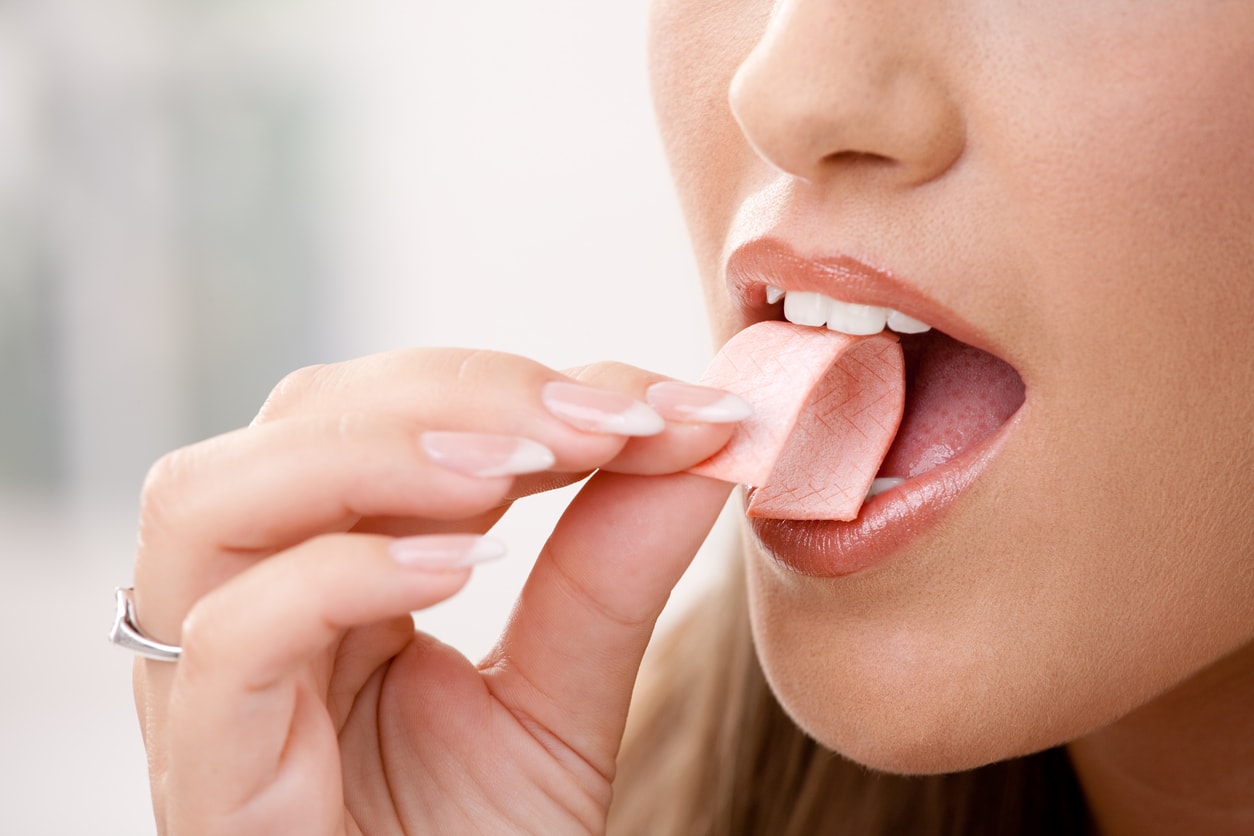The ancient Greeks used the sap of the Mastic tree as chewing gum. In pharmacies and nature shops they call Mastic Arabic Gum or Yemen Gum. Around the same time, Native Americans used the sap of the Chicle tree to chew on, but not swallow. Today, most chewing gum manufacturers use synthetic rubbers a stand-in. And most keep their exact recipes a secret! Chewing gum poses both risks and benefits to your health, including your oral health. If you are looking for a dentist in downtown Los Angeles, look no further than Doctor Kao!
Dr. Kao is a specialist in periodontics and dental implants. Dr. Kao tailors his periodontal treatment to provide lasting health benefits. Contact Dr. Kao for a consultation!
Sugar-Sweetened Gum
Sugar-sweetened gum is bad for your teeth and metabolic health. The bad bacteria in your mouth digest the sugar, causing tooth decay. It also increases the amount of plaque on your teeth.
If you need replacement teeth due to tooth decay or another cause, contact Dr. Kao today. His “Teeth-in-a-Day” procedure uses four dental implants to attach a new set of permanent replacement teeth in one day. Dr. Kao takes pride in being a top dentist in downtown Los Angeles.
Excess sugar consumption is also associated with weight gain. It can cause insulin resistance and type 2 diabetes as well.
Sugar-Free Gum
Chewing sugar-free gum helps protect your teeth from cavities. Chewing gum after a meal increases saliva flow. This washes away food debris and harmful sugars. Both of these feed the bad bacteria in your mouth.
The best sugar-free gums for your oral health are those made with xylitol. Gums sweetened with xylitol are more effective at preventing tooth decay. Studies show xylitol reduces the growth of the bacteria that causes tooth decay by as much as 75%. It also prevents the bacteria’s growth. The same bacteria cause bad breath. So, chewing xylitol-sweetened gum is a great way to get fresher breath.
Controversy Over Additives
There is controversy concerning some additives commonly found in gum recipes. The preservative BHT prevents fats from becoming rancid. Yet some animal studies show high doses can cause cancer. Since evidence is not conclusive, BHT is generally considered safe by the FDA.
Titanium dioxide gives gum its smooth texture. Extremely high doses can cause nervous system and organ damage in rats, but the effect on humans is unknown. At this time, more research is needed to determine the safe consumption limit.
Aspartame is a common artificial sweetener. People claim it causes a host of problems from headaches to obesity to cancer. There is no evidence that proves these claims, though experts still suggest following the daily intake recommendations.
The ingredients above have come into question. Yet all are still considered safe for human consumption in small amounts. There is no evidence showing gum additives pose a significant risk to your health.
Other Health Effects
Positive
Improved Brain Function
Studies show that chewing gum can improve brain function. This includes alertness, memory, understanding, and decision-making. It allows for longer periods of concentration. One theory is this is due to increased blood flow to the brain. Another is that chewing provides stress relief. Indeed, scientists show chewing reduces cortisol, the stress hormone. Chewing gum can improve your memory and reduce stress.
Weight Loss
Sugar-free gum is sweet and low in calories. It naturally helps you lose weight. It can be an appetite suppressant. There is even evidence that chewing gum may speed up your metabolism. Chewing keeps your mouth and taste buds busy until your mind gets off of food. Chewing gum can be a helpful tool as part of a healthy diet.
Negative
Headaches
If you are prone to migraines or tension headaches, chewing gum could make the problem worse. One recent review found a link between chewing gum and these types of headaches. Researchers continue to investigate the issue.
TMD
Science suggests excessive chewing can cause temporomandibular disorder (TMD.) TMD causes pain when you chew. TMD is a relatively rare condition.
Dentist in Downtown Los Angeles
Dr. Kao specializes in the prevention, diagnosis, and treatment of periodontal disease. Dr. Kao also specializes in the precise placement of dental implants. He is the #1 dental implant specialist in Los Angeles. His team speaks four languages fluently: English, Spanish, Tagalog, and Mandarin Chinese. Contact Dr. Kao at 213-250-7554 for a consultation today!



